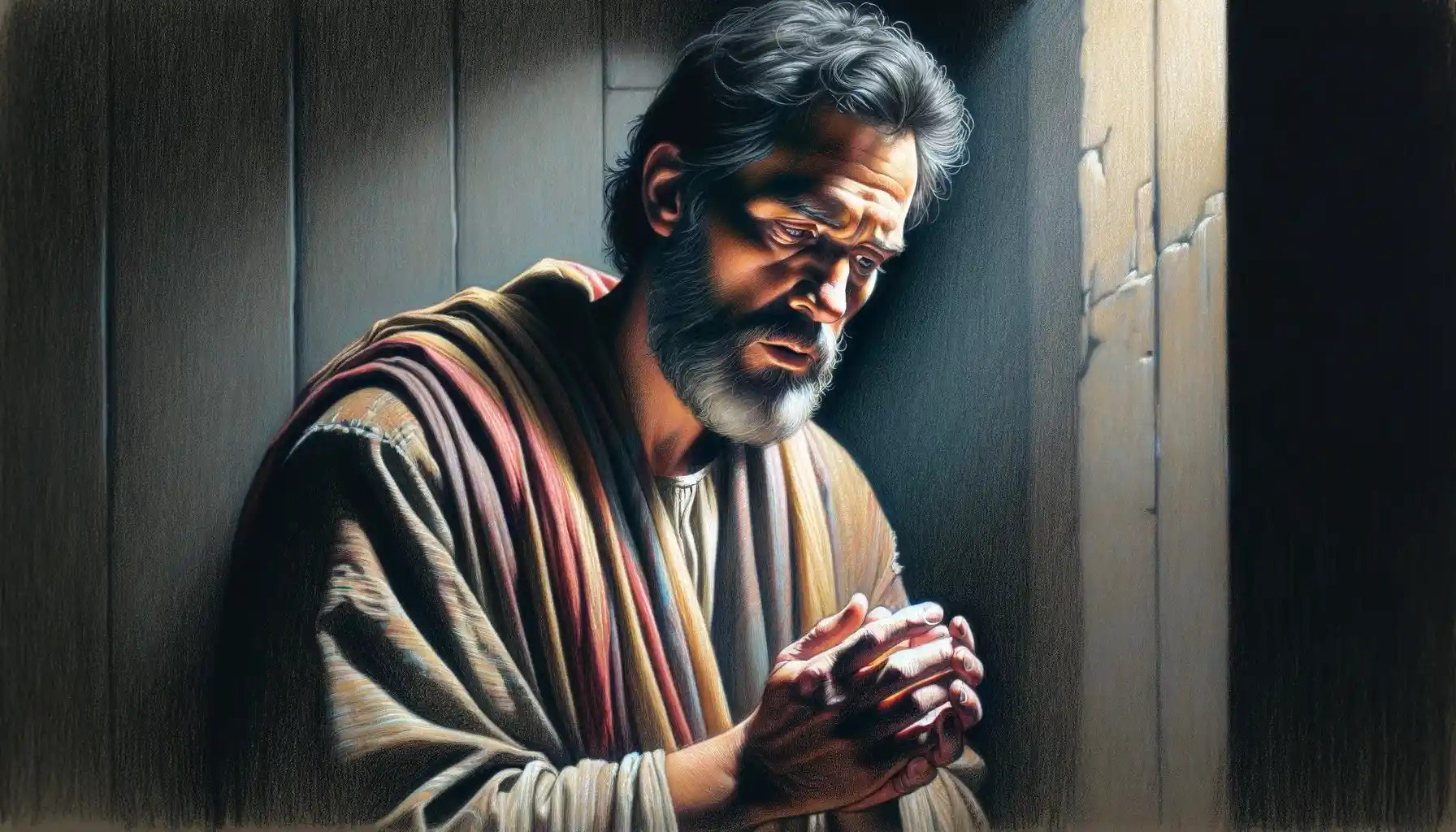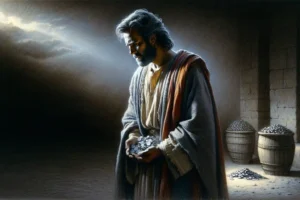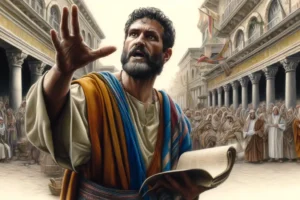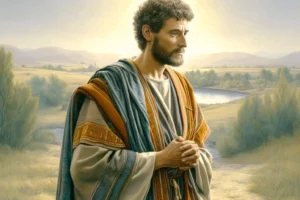
Thomas (Didymus): Known as “Doubting Thomas”
Thomas, also known as Didymus, is one of the Twelve Apostles of Jesus and is particularly noted for his skepticism about Jesus’ resurrection. Here are some quick facts about him:
- Nickname: Often called “Doubting Thomas” due to his initial disbelief when the other apostles told him that they had seen the risen Jesus.
- Famous Incident: He declared that he would not believe Jesus had risen unless he could see and touch Jesus’ wounds himself.
- Belief Affirmed: Jesus later appeared to Thomas and invited him to touch his wounds, leading Thomas to profess his faith, famously declaring, “My Lord and my God!” (John 20:28).
- Apostolic Mission: Tradition holds that Thomas traveled to India to spread the Christian gospel, where he established one of the oldest Christian communities.
- Martyrdom: He is believed to have been martyred in India, and his relics are held in several churches there.
- Patronage: Thomas is the patron saint of architects, the blind, and several other professions and places.
- Feast Day: His feast day is celebrated on July 3rd in the Western Church and October 6th in the Eastern Orthodox Church.
Thomas the Apostle, also known as Didymus, which means “the twin” in Greek, is a prominent figure in the New Testament for his distinctive blend of skepticism and profound faith. His story offers valuable insights into the nature of belief and the personal journey toward faith.
Biblical Narrative and Character
Thomas is most famously known for his skepticism about Jesus’ resurrection. After Jesus’ crucifixion, when the resurrected Christ appeared to the other apostles, Thomas was not present. Upon hearing of the event, he famously declared, “Unless I see in his hands the mark of the nails, and place my finger into the mark of the nails, and place my hand into his side, I will never believe” (John 20:25). This expression of doubt is not just a moment of skepticism but also underscores a deeply rational aspect of his personality, where seeing is the basis for belief.
The Encounter with the Risen Christ
The critical moment in Thomas’s narrative comes when Jesus appears again and directly addresses his doubts by inviting him to touch his wounds. This personal encounter transforms Thomas’s skepticism into faith, leading him to make one of the most explicit statements of Christ’s divinity in the New Testament: “My Lord and my God!” (John 20:28). This profound acknowledgment is particularly significant, highlighting that personal experience and interaction with the divine are cornerstones of faith.
Apostolic Missions
Post-resurrection, Thomas is said to have traveled extensively to spread the teachings of Christ. According to tradition, his missionary efforts took him as far as India, where he is credited with establishing one of the oldest Christian communities. The Christian tradition in India, particularly among the Saint Thomas Christians of Kerala, holds that Thomas was responsible for bringing Christianity to the Indian subcontinent in AD 52.
Martyrdom and Legacy
Thomas’s ministry in India concluded with his martyrdom. According to traditional accounts, he was killed with a spear for his faith, and his relics are enshrined in several locations, including the San Thome Basilica in Chennai, India. His willingness to die for his beliefs transformed him into a symbol of faith and conviction, reinforcing the notion that true belief often requires profound personal sacrifice.
Veneration and Symbolism
Thomas is venerated as a saint in both the Eastern and Western churches. His feast day is celebrated on July 3rd in the Western Church and October 6th in the Eastern Orthodox Church. He is the patron saint of architects, the blind, and several other professions and places. The symbol most associated with Thomas is the builder’s square, reflecting his patronage of architects.
Conclusion
Thomas’s journey from doubt to unwavering faith provides a powerful narrative about the complexities of belief. His story resonates with many who struggle with doubt, offering a poignant reminder that faith can follow an honest confrontation with disbelief. Thomas embodies the principle that faith, while it must often confront skepticism, is ultimately strengthened by personal encounter and commitment to the divine truth.
Tag:apostolic missions, belief and doubt, Christ's divinity, Christian apostle, Christian evangelism, Didymus, doubting Thomas, Eastern Orthodox Church, feast day, Kerala, martyrdom, missionary to India, New Testament, patron saint of architects, patron saint of the blind, personal encounter with Jesus, personal faith, rational character, Saint Thomas Christians, San Thome Basilica, skepticism, Thomas the Apostle, transformation of faith, Western Church



